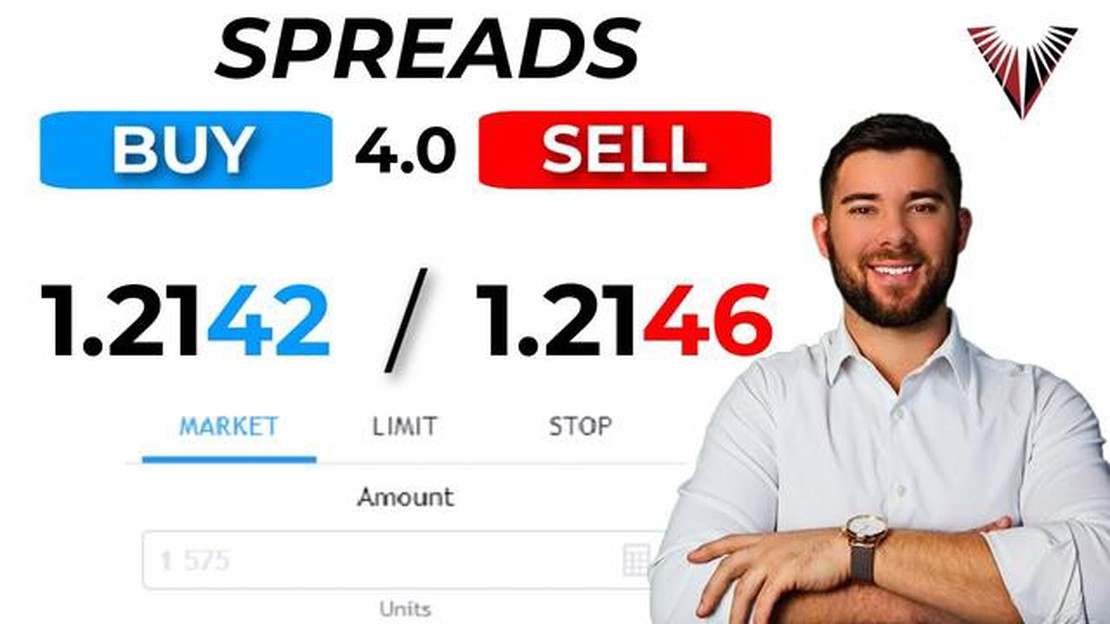Do Options Remove Leverage? Understanding the Role of Options in Leverage Reduction
Does trading options remove leverage? Options are a popular financial instrument that can be used to enhance investment returns, hedge against market …
Read Article
When it comes to forex trading, understanding the concept of spread is crucial. Spread is the difference between the bid and ask price of a currency pair and it varies from broker to broker. It is essentially the cost of making a trade in the forex market. In this comprehensive guide, we will dive deep into the topic of spread and explore its significance in the forex trading world.
Firstly, it is important to note that spread plays a significant role in a trader’s overall profitability. A narrow spread means that the cost of making a trade is lower, allowing traders to make larger profits. On the other hand, a wide spread can eat into a trader’s profits, making it more challenging to achieve positive results. Therefore, understanding how spread works and choosing a broker with competitive spreads can greatly impact a trader’s success.
In addition to its impact on profitability, spread can also serve as an indicator of market liquidity and volatility. A narrow spread indicates high liquidity and low volatility, meaning that there is a high demand for the currency pair and lower risk of significant price fluctuations. Conversely, a wide spread suggests low liquidity and higher volatility, indicating that there may be potential risks and larger price movements.
It is worth mentioning that spread can vary across different currency pairs and market conditions. Major currency pairs tend to have lower spreads compared to exotic or less commonly traded currency pairs. Additionally, during times of high market volatility, such as economic news releases or geopolitical events, spreads can widen significantly. Traders need to be aware of these factors and consider them when selecting a broker and planning their trading strategies.
Read Also: Understanding Speculation in Forex: Everything You Need to Know
In conclusion, understanding the spread of a forex broker is essential for any trader looking to achieve success in the forex market. It affects a trader’s profitability, serves as an indicator of market conditions, and can vary across different currency pairs and market conditions. By taking the time to research and choose a broker with competitive spreads, traders can optimize their trading strategies and increase their chances of achieving positive results in the forex market.
Forex spreads, or the difference between bid and ask prices, can vary significantly depending on various factors. Understanding and analyzing these factors is crucial for traders to make informed decisions and optimize their trading strategies. Here are some of the key factors that affect forex spreads:
It is important for traders to consider these factors and monitor market conditions to anticipate changes in spreads. By understanding the factors that affect spreads, traders can better navigate the forex market and optimize their trading strategies.
Forex spreads refer to the difference between the bid and ask prices of a currency pair. The spread is usually measured in pips and represents the cost of trading for traders.
There are different types of forex spreads that traders need to be aware of:
It is important for traders to consider the type of forex spread offered by a broker before choosing to trade with them. The spread can have a significant impact on trading costs and profitability. Additionally, different trading strategies may require specific spreads to be effective.
Understanding the types of forex spreads and their implications can help traders make informed decisions and navigate the forex market more effectively.
The spread in forex trading refers to the difference between the buy and sell price of a currency pair. It represents the cost of trading and is measured in pips.
Read Also: How to effectively send a complaint to a company: a step-by-step guide
The spread is important for forex traders as it directly affects their trading costs. A lower spread means lower transaction costs and potentially higher profits. Traders should always consider the spread when choosing a forex broker.
A forex broker makes money from spreads by charging traders a small fee on each transaction. The difference between the buy and sell price is the broker’s profit. The spreads can vary depending on market conditions, liquidity, and the broker’s pricing model.
Several factors can affect the spread in forex trading, including market volatility, liquidity, economic news releases, and the broker’s pricing model. During times of high volatility, spreads tend to widen, while in periods of low volatility, spreads may tighten.
Does trading options remove leverage? Options are a popular financial instrument that can be used to enhance investment returns, hedge against market …
Read ArticleUnderstanding Pyramiding in Trading: Strategies and Benefits Pyramiding is a trading technique that involves adding to winning positions after the …
Read ArticleThe Ultimate Guide to Trading Indices: Discover the Best Strategies If you are interested in trading indices, you have come to the right place. In …
Read ArticleUnderstanding the Simple Moving Average Explained The simple moving average (SMA) is a widely used technical analysis tool that helps traders and …
Read ArticleHow to Use ATR to Set Stop Loss Orders Ensuring you have a solid risk management strategy is crucial when it comes to trading in the financial …
Read ArticleIs F& Real? F# is a strongly-typed, functional-first programming language that offers a unique and powerful approach to solving complex problems. It …
Read Article